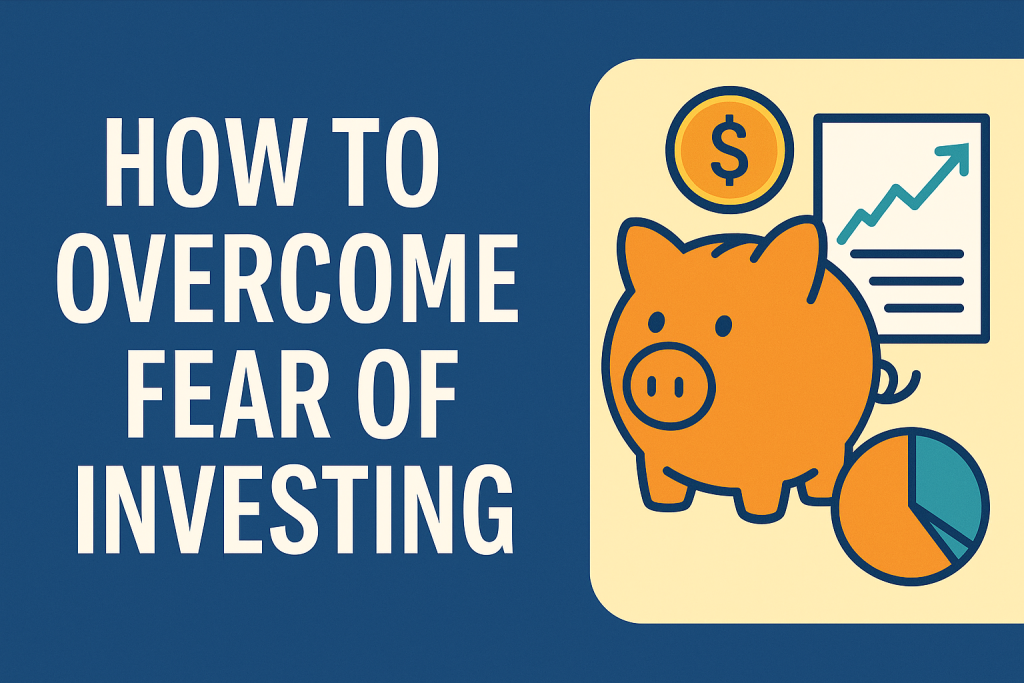Investing is one of the most powerful tools for building wealth, but for many beginners, the idea of putting hard-earned money into the stock market feels overwhelming. The fear of investing can hold you back from opportunities for growth and financial freedom. In this guide, we’ll explore why this fear exists, practical steps to overcome it, and how to develop financial courage to take the first steps in your beginner investing journey.
Understanding the Fear of Investing
The fear of investing often stems from uncertainty and lack of knowledge. Common fears include:
- Losing money and not being able to recover
- Investing at the wrong time
- Not understanding how the markets work
- Feeling like investing is only for wealthy or experienced individuals
It’s normal to feel anxious about putting your money at risk, but letting fear dictate your decisions can prevent you from achieving your long-term goals.
Steps to Overcome Fear of Investing
1. Educate Yourself
Knowledge is the antidote to fear. Start by learning the basics of beginner investing, such as how stocks, bonds, and mutual funds work. Read articles, watch videos, or take beginner-friendly courses. The more you understand, the more confident you’ll feel about your choices.
2. Start Small
You don’t need to invest thousands of dollars to get started. Begin with a small amount—something you’re comfortable risking—and watch how your investments perform over time. This hands-on experience helps reduce fear and builds familiarity with the process.
3. Focus on Long-Term Goals
The stock market can be volatile in the short term, but historically, it has grown over the long term. Shifting your mindset from quick gains to long-term financial courage helps reduce anxiety and encourages patience.
4. Diversify Your Portfolio
Spreading your investments across different asset classes—like stocks, bonds, and ETFs—reduces risk. Diversification is a proven strategy to manage uncertainty and protect your money from market fluctuations.
5. Set Realistic Expectations
Every investor experiences market ups and downs. Accept that short-term losses are part of the process and focus on the bigger picture. Having realistic expectations helps you stay committed even when the market feels uncertain.
Building Financial Courage
Financial courage is about taking action despite uncertainty. Here’s how to build it:
Start with a Clear Plan
Define your investment goals—whether it’s retirement, buying a home, or funding your child’s education. A clear purpose gives you motivation and helps you stay focused when challenges arise.
Seek Support and Advice
Talk to a financial advisor or mentor. Learning from others who have been through the ups and downs of investing can provide reassurance and practical tips for your journey.
Celebrate Small Wins
Every step you take, no matter how small, is a victory. Celebrate opening your first investment account, making your first trade, or sticking to your plan during market dips. These small wins build momentum and reinforce positive habits.
Final Thoughts
Overcoming the fear of investing starts with education, small steps, and a shift in mindset. By approaching investing as a journey, not a sprint, and building financial courage along the way, you can move beyond fear and toward a future of opportunity and growth. Remember, every successful investor started as a beginner—what matters most is that you take the first step.


